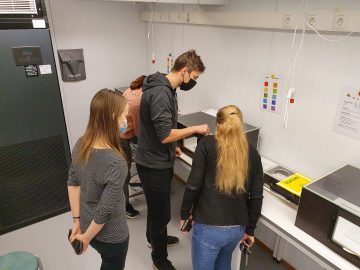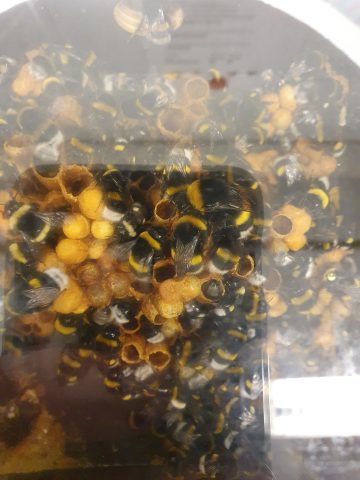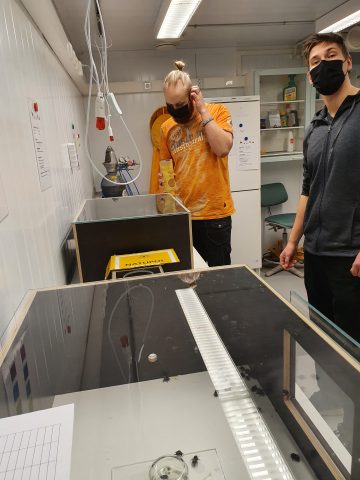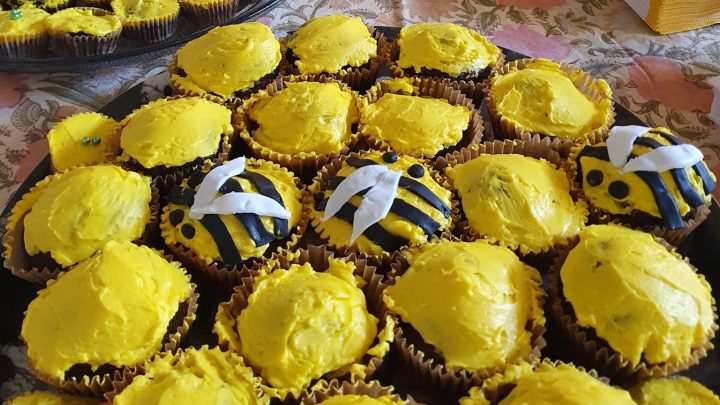Grand Opening of the Bumblebee Lab
Today we celebrated the start of exciting studies on bumblebee learning behaviour and whether it is affected by glyphosate-based herbicides!


Pollinators are key players in global biodiversity and ecosystem functioning, providing essential ecosystem services to wild plant communities and agricultural productivity. Both the abundance and diversity of insect pollinators have alarmingly declined across the entire globe during the last decades. This decline applies to both, wild insect populations and domesticated species, such as bumblebees (Bombus sp.) and the domestic honey bee (Apis mellifera) stocks, which are essential in horticulture and agriculture.
Our project examines how field-realistic doses of the worlds widely used herbicide glyphosate and glyphosate-based herbicides affect pollinator learning and memory and the mechanisms behind these outcomes. Cognitive traits of the bees determine successful foraging and social behavior of social insects and therefore their fitness. We assume that factors negatively affecting bee learning and memory are central contributors to the global pollinator decline, as well as to decreases in biodiversity and food security. Increasing evidence demonstrates that glyphosate modulates the diversity and community composition of microbiomes and that gut microbiota play a significant role in the health of their animal hosts.
Our research will (1) elevate the perception of the roles of microbially-mediated cognitive abilities of insects for plant pollination and its value as ecosystem service, (2) demonstrate the link between agrochemical pollution, pollinator behavior and insect biodiversity decline and (3) we provide tools and testable hypotheses for scientists and insights for decision makers on how to ensure pollination potential to support ecosystem functions and services.


